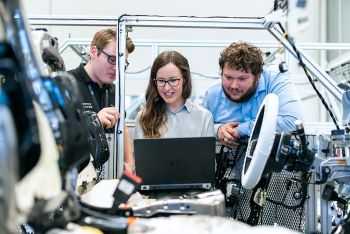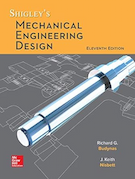Trend Toward Interdisciplinary Engineering
Engineering has traditionally been a highly specialized field, with engineers focusing on developing expertise in a specific area, such as electrical engineering, mechanical engineering, or civil engineering. However, in recent years, the field of engineering has become increasingly interdisciplinary, with engineers working with experts from other fields to address complex problems and create innovative solutions. This shift towards interdisciplinary engineering is a result of several factors, including the increasing complexity of modern technology and the growing demand for engineers to develop solutions to complex global challenges, such as climate change and sustainable energy production.

Increasing Complexity of Modern Technology
One of the key drivers of interdisciplinary engineering is the increasing complexity of modern technology. As technology continues to advance, it is becoming increasingly difficult for engineers to develop solutions to complex problems within the boundaries of a single discipline. For example, developing a new generation of electric vehicles requires expertise in electrical and mechanical engineering, as well as materials science, computer science, and industrial design. Interdisciplinary engineering enables engineers to bring their unique perspectives and expertise to the table, allowing them to work together to develop more comprehensive and effective solutions.
Addressing Complex Global Challenges
Another important factor driving the trend towards interdisciplinary engineering is the growing demand for engineers to address complex global challenges, such as climate change and sustainable energy production. Climate change is a complex problem that requires a multifaceted solution, and engineers from various disciplines must work together to develop and implement effective strategies. For example, civil engineers must work with electrical engineers and computer scientists to develop and implement smart grid systems that are capable of balancing energy supply and demand in real-time, while mechanical engineers must work with materials scientists to develop new energy storage technologies.
Continuing Education in Interdisciplinary Engineering
Continuing education is an important tool for engineers who want to succeed in this interdisciplinary environment. By continuously expanding their knowledge and skills, engineers can become more effective collaborators and be better equipped to develop innovative solutions to complex problems. For example, engineers who are familiar with the latest advancements in materials science may be better able to develop solutions that are lighter, stronger, and more sustainable. Engineers who are familiar with the latest advances in computer science and artificial intelligence may be better able to develop systems that are more efficient, automated, and intelligent.
Developing Interpersonal and Communication Skills
In order to be effective in this interdisciplinary environment, engineers must also develop strong interpersonal and communication skills. They must be able to work effectively with experts from other disciplines and be able to translate complex technical concepts into terms that can be understood by a non-technical audience. Continuing education can play an important role in helping engineers develop these skills, by providing them with opportunities to interact with experts from other fields, as well as to participate in workshops and courses that focus on communication and teamwork.
PDH Classroom offers a suite of online continuing education courses tailored to engineers. These courses can be used to fulfill PDH credit requirements for maintaining your PE license, or just as a part of staying ahead in your field.
The trend towards interdisciplinary engineering is an important development in the field of engineering and is driven by the increasing complexity of modern technology and the growing demand for engineers to address complex global challenges. Engineers who are able to work effectively with experts from other disciplines and who have strong interpersonal and communication skills will be well-positioned to succeed in this new interdisciplinary environment. Continuing education is an important tool for engineers who want to remain competitive and relevant in this rapidly evolving field, and provides them with opportunities to expand their knowledge, develop new skills, and interact with experts from other disciplines.




